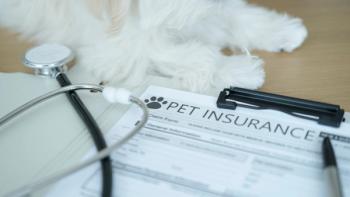
Independent contractors vs. veterinary employees: Know the difference
Providing the right documentation can protect your veterinary practice come audit time.
If you've ever wondered about the difference between an employee and an independent contractor, you're not alone. One of the most significant differences is this: An employee is subject to employment taxes and required to be covered by your practice's worker's compensation policy. An independent contractor is responsible for his or her own employment taxes and insurance and also qualifies for some additional tax benefits, such as an auto expense deduction and a home office deduction. It's less expensive for you to hire independent contractors, and it may be beneficial to these workers as well. But this classification can get tricky.
Many practices hire relief veterinarians as independent contractors. Practices also pay specialists who perform services at their hospital, such as ultrasounds and surgery, as independent contractors. Groomers working in veterinary hospitals may also be considered self-employed, even though they work for a single hospital on a full-time basis. And here's where the line gets blurry.
The IRS, state labor departments, and insurance companies are concerned about employees who are misclassified as independent contractors. That's why the IRS regularly performs audits to determine if your independent contractors truly meet the qualifications. And often it's not easy to determine. For one thing, federal and state governments may have different definitions.
Typically a worker's status is defined by how much you control his or her duties and how regularly the person works for you. An independent contractor will pay for his or her own insurance, usually have a business entity associated with services provided, work for multiple hospitals, and provide billing for those services. Specialists who work in your facility usually meet those requirements.
With relief veterinarians, it's less clear. For example, if a relief doctor works at your practice three days a week for an entire year but isn't scheduled on the same days each week, is he considered an independent contractor? Most government agencies would say no; he's a part-time employee because you're controlling the schedule and the employment is regular. This doctor may have asked for you to hire him as an independent contractor, but remember, it's up to you to make sure he meets the legal requirements. You're the one who will be held responsible if the government disagrees with the classification.
An audit by either the state or federal government resulting in a change in status will affect both you and the veterinary worker. For example, you may find yourself suddenly responsible for several years' worth of a reclassified employee's payroll taxes, and the employee may lose tax benefits he or she was counting on. Plus, many states have reciprocity arrangements wherein if they find issues during an audit, they'll turn that information over to the federal government for a follow-up audit.
Recently the IRS announced a new federal employment tax relief program called the Voluntary Classification Settlement Program (VCSP). Review how you've classified workers in your practice and determine if you have any potential problems, especially with those you've classified as relief veterinarians. This program may allow you to obtain partial relief from past federal employment tax obligations for misclassified workers when you agree to treat those individuals as employees going forward. To be eligible to apply for the VCSP benefit, you must:
> consistently have treated affected veterinary workers in the past years as non-employees.
> have filed all required 1099 forms for affected workers for the previous three years.
> not currently be under audit by the IRS, the U.S. Department of Labor, or a state agency concerning the classification of these workers.
For more details, visit
> a copy of their veterinary license
> proof of malpractice insurance and worker's compensation insurance
> a business card—make sure that their business name is on it
> a bill for the services they provide.
Also have independent contractors complete an IRS form W-9 so you can issue a 1099 form at the end of the year. Remember: The more documentation you have in your veterinary practice files, the less stressed you'll be at audit time.
Gary Glassman, CPA, a Veterinary Economics Editorial Advisory Board member, is a partner with Burzenski & Co. in East Haven, Conn., and specializes in veterinary accounting and tax planning.
Newsletter
From exam room tips to practice management insights, get trusted veterinary news delivered straight to your inbox—subscribe to dvm360.






